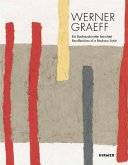Forgacs examines the development of the Bauhaus school of architecture and applied design by focusing on the idea of the Bauhaus, rather than on its artefacts. What gave this idea its extraordinary powers of survival? Founded in 1919, with the architect Walter Gropius as its first director, the Bauhaus carried within it the seeds of conflict from the start. The duration of the Bauhaus coincides very nearly with that of the Weimar Republic; the Bauhaus idea - the notion that the artist should be involved in the technological innovations of mechanization and mass production - is a concept that was bound to arouse the most passionate feelings. It is these two strands - personal and political - that Forgacs so cleverly interweaves. The text has been extensively revised since its original publication in Hungarian, and an entirely new chapter has been added on the Bauhaus's Russian analogue, VkhUTEMAS, the Moscow academy of industrial art.
Hinweis: Dieser Artikel kann nur an eine deutsche Lieferadresse ausgeliefert werden.
Hinweis: Dieser Artikel kann nur an eine deutsche Lieferadresse ausgeliefert werden.








